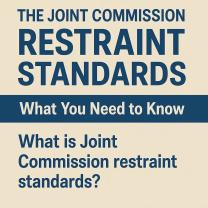How do I know if my shoulder is swollen?
Shoulder swelling can be caused by various factors, ranging from minor injuries to more serious medical conditions. Here's an overview of the signs, common causes, and steps for self-assessment related to shoulder swelling:
Signs of Shoulder Swelling:
- Visible Swelling: Obvious swelling or puffiness around the shoulder joint or in the surrounding area.
- Pain: Swelling is often accompanied by pain, which may range from mild discomfort to sharp pain.
- Limited Range of Motion: Difficulty moving the shoulder joint due to stiffness and swelling.
- Warmth and Redness: Inflammation can cause the skin around the shoulder to feel warm to the touch and appear red.
- Tenderness: The swollen area may feel tender or sensitive when touched.
- Crepitus: Some individuals might experience a crackling or grinding sensation when moving the shoulder.
Common Causes of Shoulder Swelling:
- Injury: Strains, sprains, contusions, and fractures can lead to swelling in the shoulder area.
- Tendonitis: Inflammation of the tendons (tendonitis) or inflammation of the bursa sac (bursitis) can cause shoulder swelling.
- Arthritis: Conditions like osteoarthritis or rheumatoid arthritis can lead to inflammation and swelling in the shoulder joint.
- Shoulder Dislocation: A dislocated shoulder can cause significant swelling and pain.
- Rotator Cuff Tears: Tears in the rotator cuff tendons can result in swelling and limited range of motion.
- Frozen Shoulder: Also known as adhesive capsulitis, this condition causes stiffness and swelling in the shoulder joint.
- Infection: Infections, though rare, can cause localized swelling and inflammation in the shoulder area.
- Lymphedema: Swelling due to the accumulation of lymph fluid can affect the shoulder region.
Self-Assessment and When to Seek Medical Attention:
- Examine the Shoulder: Gently inspect the shoulder area for visible signs of swelling, redness, warmth, and tenderness.
- Range of Motion: Attempt to move the shoulder joint through its normal range of motion. Note if movement is restricted or painful.
- Pain Level: Assess the level of pain associated with the swelling. Mild discomfort might be manageable at home, but severe pain warrants medical attention.
- Duration: If the swelling is persistent and doesn't improve over a few days, consider seeking medical advice.
- Other Symptoms: Pay attention to other symptoms such as fever, chills, numbness, tingling, or weakness in the arm. These could indicate more serious underlying issues.
If the shoulder swelling is accompanied by severe pain, difficulty moving the arm, signs of infection, or if you're concerned about the cause, it's recommended to consult a healthcare professional. A medical evaluation can help identify the underlying cause and determine the appropriate treatment, whether it's rest, over-the-counter pain relief, physical therapy, or more intensive interventions.
Remember, self-assessment is a preliminary step, and any persistent or concerning symptoms should be evaluated by a medical professional for an accurate diagnosis and appropriate care.












